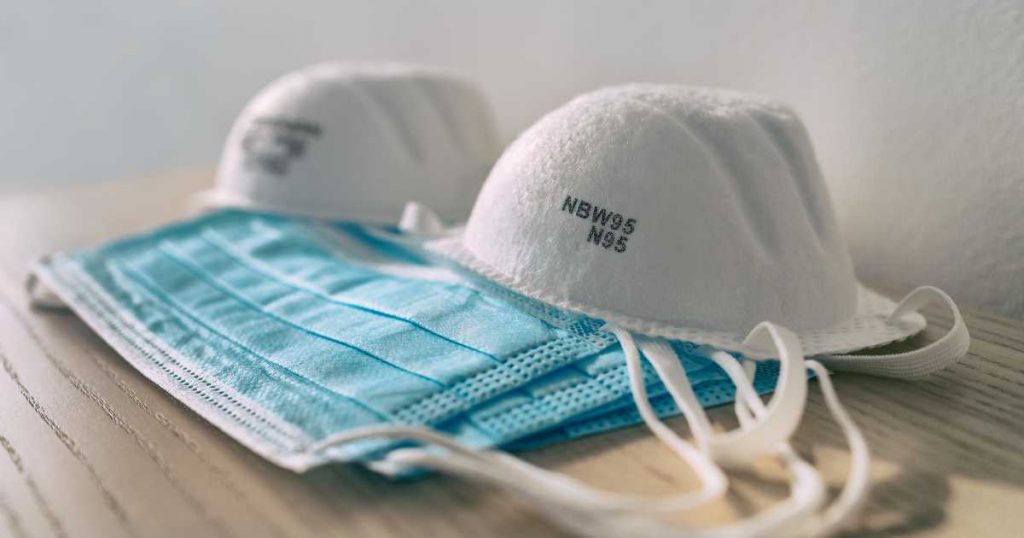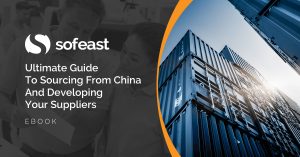With the COVID 19 pandemic hitting more countries, and more people realizing how serious the situation is, it seems tens of thousands of people started looking for face masks and other personal protection products.
And what I see is a lot of people sending money, receiving substandard products, or not receiving anything at all.
I wrote this article as a warning about your risks. And also to improve your odds of getting what you want, if you are determined to pursue your project.
First, be aware of the context
On the supply side, China has been encouraging the formation of an “army” of manufacturers of medical equipment, face masks, & other consumables since January, as a response to the pandemic.
It has been a national emergency. No exports were allowed for some time (even to regular customers who saw an upcoming need and pushed their suppliers hard for an extra shipment).
Production volumes soon matched and surpassed the domestic needs. Private companies are now allowed to export these products.
On the worldwide stage, demand currently far surpasses supply, and the imbalance seems to get worse and worse. A lot of people without any experience buying from Asia have been frantically contacting potential suppliers. These people have no idea how to reduce their risks.
Facial masks: a seller’s market for the next few months
A lot of new entrants know nothing about the production of medical consumables and are in it for the short-term profit. Chinese people have started to call a mask production line a “money printing machine”.
Here is what we have seen these days:
- Masks sell for about 10 times their usual price and rising.
- Many suppliers turn away small orders (their minimum order quantity is 10,000 pcs, 100,000 pcs, or even higher).
- Many suppliers are very busy and don’t want to send samples (“buy them at this address on jd.com”), and don’t want to be audited. Do you want to do business like this??
- Lead times are often 2 weeks to 1 month.
Nothing is riskier than a one-off transaction with a Chinese counter-party
I have to be careful here. Most Chinese companies tend to behave honestly at any given time and I am sure many companies that started manufacturing personal protection equipment are, in part, motivated by the desire to do good.
However, many other suppliers are in this just for short-term profit. They know that these new production lines will not be profitable in 1 or 2 years because of enormous overcapacity. Now is the time to make some money.
The temptation to cut corners, or even to cheat, is high. After all, many suppliers think ‘lose one customer one day, find 5 new customers in the email the next day’.
UPDATE 25 March: Frederic Rocafort wrote a great piece on the same general topic: Coronavirus Legal Issues Around the World, Part 5: Getting Products from Overseas has Never Been Riskier. He discusses “how the coronavirus is giving nearly free license to foreign manufacturers to provide bad product, counterfeit product, or no product at all and this is especially true of the products most needed to fight against the virus: surgical masks, N95 masks, ventilators (really anything PPE), and cleaning products.”
Wait… will you even be authorized to conduct this transaction?
This is a question you might want to ask before sending any money out.
In some countries, exporting masks is forbidden. For example, in Thailand, nobody is allowed to export masks without the proper BOI authorization. If a potential supplier doesn’t mention it, they are probably a scammer.
And what about your country? If the Customs office finds a shipment of 10,000 masks sent to a private individual when front-line health professionals are screaming for more protective equipment, what will they do? In many cases, I bet the shipment will be seized, and for very good reason!
Think about it – even EU countries try to steal those products from other EU countries. That’s how desperate people are getting these days.
Supplier search and first contact
Searching for suppliers of masks and finding candidates is not difficult with Alibaba, Global Sources, Google, and so on. And I bet you saw many promotional messages in your Linkedin feed and in your email inbox.
Make sure to do an initial vetting before wasting time discussing with the wrong people. Here are a few tips:
- Don’t worry about buying from an intermediary vs. a manufacturer. Some Chinese manufacturers are behaving quite unethically. If you have a way of asserting an intermediary’s reputation, it is a plus.
- Know what you are looking for. Prepare a list of questions. Don’t appear to be clueless, or you will be a very tempting target for scammers.
- On the other hand, don’t prepare a formal RFQ if you only buy 5,000 or 10,000 pcs. It screams “we are contacting 20 of your competitors, so your chance of getting our business is low even if you take 3 hours to complete our questionnaire”. You will get a very low response rate…
Also, when you make first contact, introduce yourself properly when contacting potential suppliers. Some of them are more likely to scam a private buyer (who might hoard masks and sell them on the black market) than a hospital group, for example.
The most common categories and certifications of face masks
There are mainly 2 categories.
The 3-ply surgery masks are a very standard product. It is likely the same from one supplier to another. Very expensive for what it is, these days.
The N95 masks, which do a better job of blocking small particles (provided they fit the wearer’s face), tend to be more expensive. We need to break this into 4 sub-categories:
- Nearly all those FDA registered got this registration before the crisis, not in the past few weeks. You may check if their registration is valid in this database.
- Some factories got a PFF2 certification recently, and that’s a plus.
- Some factories boast the KN95 (a Chinese standard).
- Some have no certification at all, and that comes with an extra dose of risk.
Supplier due diligence on face mask suppliers
If you are really new to international trade, do not try to buy directly from a Chinese manufacturer. If someone in your trusted network is offering to be your supplier, it may be the safer route… assuming they themselves have real experience in that arena.
In case you still want to qualify Chinese suppliers by yourself, here are some questions I’d ask a potential supplier:
- How many years have you been making this product? Can you prove it? For example, what was the scope of your business registration certificate or on your ISO 9001 certification last year?
- Do you have the testing device to confirm small particles are blocked in the required proportion? Or do you trust your supplier of non-woven material?
- Do you have certificates? Are they in your company name & address?
- Do you operate in a clean room? What is the standard of that clean room? (It should be higher than in an electronic factory, for example.)
- Are you ISO 13485 certified? For what product scope? (Not a must, but always a sign of a safer supplier.)
UPDATE 29 March: Dan Harris wrote Buying Face Masks and Other PPE from China: Not For the Faint of Heart. He explains the type of due diligence his firm typically conducts in order to reduce risks to a level acceptable for the buyer.
Quality inspection before shipment
Are you willing to send money and wait for your package? Sending an inspector to the factory reduces the chance of receiving one-layer masks or even nothing at all.
All the advice I wrote before about inspections is applicable here. And you can have an idea of the checklist a professional inspector would follow by going here.
Consider going deeper into the verification. Some inspection companies have a policy of always sending at least 2 people for such high-risk products. Think about it — people might die if the mask doesn’t work as intended.
****
Nobody knows how long this situation will last. We fear the worst for the next few months. And we don’t think supply will catch up with demand for at least another 3-6 months.
In the meantime, always keep in mind that this is like the stock market… on average, small and inexperienced players get squeezed!
Disclaimer
We are not lawyers. What we wrote above is based only on our understanding of the regulatory requirements. QualityInspection.org does not present this information as a basis for you to make decisions, and we do not accept any liability if you do so.
If you’re currently sourcing face masks and other PPE from China a lot of the learning mentioned in this eBook will help you…
Ultimate Guide To Sourcing From China And Developing Your Suppliers [eBook]
This FREE eBook starts from the beginning, discussing whether you need to hire a sourcing agent, and follows the sourcing process right through to developing a trusted supplier’s quality and productivity.
There are 15 chapters over 80+ pages to explore, providing exhaustive guidance on the entire sourcing and supplier development process from start to finish, including:
- Identifying suppliers,
- Negotiations,
- Quality inspections,
- Developing Chinese suppliers,
- Improving factory quality and productivity,
- and much more…


